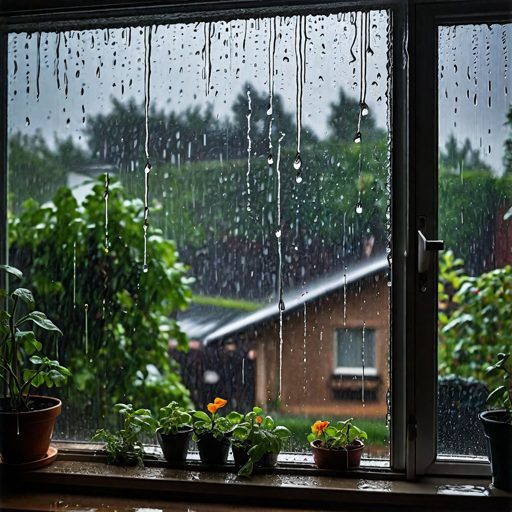
Feeling Alone: India’s Shadow of One
Recommended for Health
Whispers of Loneliness
In the heart of India, a vast and teeming nation, an invisible epidemic spreads its roots. Loneliness – a silent specter haunting bustling streets and seemingly crowded homes. It gnaws at the edges of Meera’s heart, a graphic designer lost in the crush of the Delhi metro.
The hum of the crowd fades into a meaningless echo, amplifying the hollow ache within her. Her tired eyes, smudged with yesterday’s kohl, scan the faces around her, seeking a flicker of recognition, a shared smile. But they find only averted glances, strangers oblivious to her silent cry for connection.
Across the sprawling expanse of the nation, in a Kolkata neighborhood, Anupam sits on his balcony, stooped and fragile as a sparrow. He clutches a faded photograph, its edges worn with love. A younger Anupam smiles back, surrounded by boisterous children, their laughter echoing across the years.
Once a respected schoolteacher, his days now stretch out in desolate silence. The raucous cries of street vendors below only highlight the emptiness of his meticulously tidy apartment.
Somewhere in Bangalore, a young tech worker, his name lost to the sterile walls of his apartment, stares at his screens. Bathed in their artificial blue light, he craves connection that algorithms fail to provide. His fingers, nimble on the keyboard, tremble when faced with the prospect of a real human touch.
Late into the night, he scrolls through endless feeds, the faces blurring into an anonymous blur much like the ones on Meera’s metro ride.
A housewife, her name whispered only by the wind rustling through the leaves of her garden, feels the weight of her loneliness settle heavier each day. Her children have flown the nest, leaving her in a house filled with immaculate order but devoid of the chaos of love.
She yearns for the rumble of voices, the shared warmth of a crowded kitchen, anything to break the deafening silence of her perfectly arranged life.
The Dreamscapes

The Dreamscapes
As night falls, these separate lives bleed into uneasy dreams. The metro plunges into darkness. A spotlight illuminates an old woman, her face a mirror of Meera’s own desolation. They speak without words, sharing the heavy silence of unvoiced fears. The metro jolts, the woman vanishes, leaving Meera disoriented, the boundary between reality and nightmare blurred.
Anupam dozes off on his balcony, the photo slipping from his grasp. He’s back in his classroom, the air alive with the chatter of his students. A young girl with mischievous eyes recites a poem he taught her, its words a lifeline to a past where he felt needed, loved.
The bell rings, shattering the dream, and Anupam is once again alone, the cries of the city a mockery of the bustling schoolroom of his memory.
The tech worker tosses and turns. He dreams of a world where algorithms connect souls, not just data, where laughter and tears can be coded in binary. Waking with a start, he stumbles to his balcony, seeking solace in the familiar skyline, the comforting anonymity of countless windows glowing in the distance.
In the quiet of her garden, the housewife imagines a knock on her door, a neighbor inviting her to an evening of stories and shared meals. In her dream, the women’s voices fill the empty rooms, their warmth dispelling the chill of her isolation.
Connecting Threads
The same street vendor’s cry that momentarily jolts Anupam awakens Meera on the metro. The rain that rattles the lonely tech worker’s window also falls on the housewife’s garden, each isolated in their own worlds, yet touched by the same forces of nature. A faded Bollywood song, crackling from a distant radio, becomes the soundtrack of their separate sorrows.
India’s loneliness is not always a solitary struggle. Sometimes, it walks hand in hand with the crowd, its silence amplified by the noise of life. It’s found in bustling cities and quiet towns, in modern apartments and aging homes. It’s a shared heartbreak, an epidemic hidden in plain sight, waiting for the day when voices rise against it, when hands reach out in connection, and hearts open wide enough to shatter the silence.
A Shared downpour

A Shared downpour
It starts with an unseasonable downpour. Meera, caught without an umbrella, darts into the doorway of a small grocery store. Inside, she finds Anupam, his stooped figure silhouetted against the rain-streaked window. The tech worker, seeking shelter on his walk home, joins them in the cramped space. In the forced proximity, a hesitant conversation begins, halting and awkward, yet a break in their usual silence.
Days later, the housewife sees a flyer in the market: “Community Potluck – Everyone Welcome!” A flicker of curiosity battles her usual reluctance. That evening, clutching a dish of her favorite dal, she stands nervously at the doorstep of a bustling community center. Inside, the scent of spices, laughter, and music swirl in the air. She spots Meera, the woman from the metro, helping set the long table. Their eyes meet, a silent recognition of their shared anxieties.
Connections Bloom
Anupam finds a worn-out children’s book amidst the donations for the potluck. He brings it along, hoping to find a child to share it with. At the event, a little girl wanders over, drawn to his kind eyes. He begins to read, the familiar words transporting him back to his beloved classroom.
The girl’s mother, a young woman with a weary smile, thanks Anupam. Later, she shares a cup of chai with him, the first real conversation he’s had in weeks.
The tech worker, initially unsure of how to fit in, finds himself surrounded by a group of older women seeking help with their phones. He patiently shows them how to connect with distant family members, bridging the gap between technology and heartfelt longing.
Dreams Take Flight
That night, Meera’s dream is less a haunting echo of her loneliness and more a blueprint for change. She envisions a bustling café, filled with mismatched tables and worn couches, a space where conversation flows as freely as the tea.
The housewife, too, dreams of her quiet home transformed – children’s voices filling the rooms, laughter replacing the hollow echo of her footsteps. And Anupam finds himself once again surrounded by the eager faces of students, the blackboard not a relic of the past, but a tool to teach language classes to new immigrants.
The Path Forward
It’s not an overnight cure, the loneliness. But now, there’s a flicker of possibility. Meera’s idea for the café takes root in a conversation over shared samosas at the potluck. The housewife discovers that the community center runs a volunteer program for children, and a new purpose blossoms within her. Anupam’s language class takes shape, filled with people longing to feel at home in their new country.
The connections they forge are tentative, sometimes fumbling, but they are connections nonetheless. One rainy afternoon, Meera finds Anupam on her metro line, his eyes brighter, on his way to his new class. The tech worker passes the housewife’s garden, now filled with the joyous chaos of a children’s art program. He smiles, the world outside his window a little less lonely.
India’s epidemic of loneliness won’t be overturned by a single potluck or a kind glance on the metro. But in these small acts of reaching out, listening, and offering a simple smile, a new rhythm begins. It’s the rhythm of hope, a heartbeat against the deafening silence, proof that no one, no matter how lost they may feel, needs to walk this path alone.
Related Stories
- Mental Health Awareness: Seeking Truth
- Giggles & Gains: Pursuit of Happiness
- Mental Illness Conversations in Indian Education!
- Makku & Friends Explore Bipolar Disease in Children!
- Teen Depression: Early Signs and Solutions!
- Anorexia in Teens: What Parents Should Know!
- Insomnia: A Growing Health Concern!
Curious Times is a leading newspaper and website for kids. We publish daily global news aligned to your learning levels (also as per NEP 2020): Foundational, Preparatory (Primary), Middle and Senior. So, check out the News tab for this. We bring kids’ favourite Curious Times Weekly newspaper every weekend with top news, feature stories and kids’ contributions. Check out daily JokesPoke, Tongue Twisters, Word of the Day and Quote of the Day, kids need it all the time.
ME – My Expressions at Curious Times is your place to get your work published, building your quality digital footprint. And it is a good way to share your talent and skills with your friends, family, school, teachers and the world. Thus, as you will step into higher educational institutes your published content will showcase your strength.
Events, Quizzes and Competitions bring students from over 5,000 schools globally to participate in the 21st-Century themes. Here schools and students win certificates, prizes and recognition through these global events.
Sign-up for your school for FREE!
Communicate with us: WhatsApp, Instagram, Facebook, Youtube, Twitter, and LinkedIn.
0 (Please login to give a Curious Clap to your friend.)
